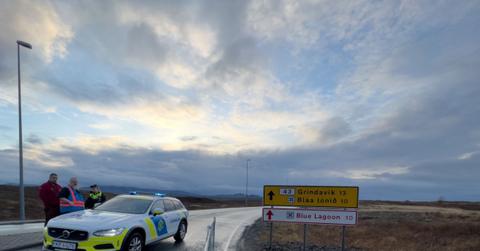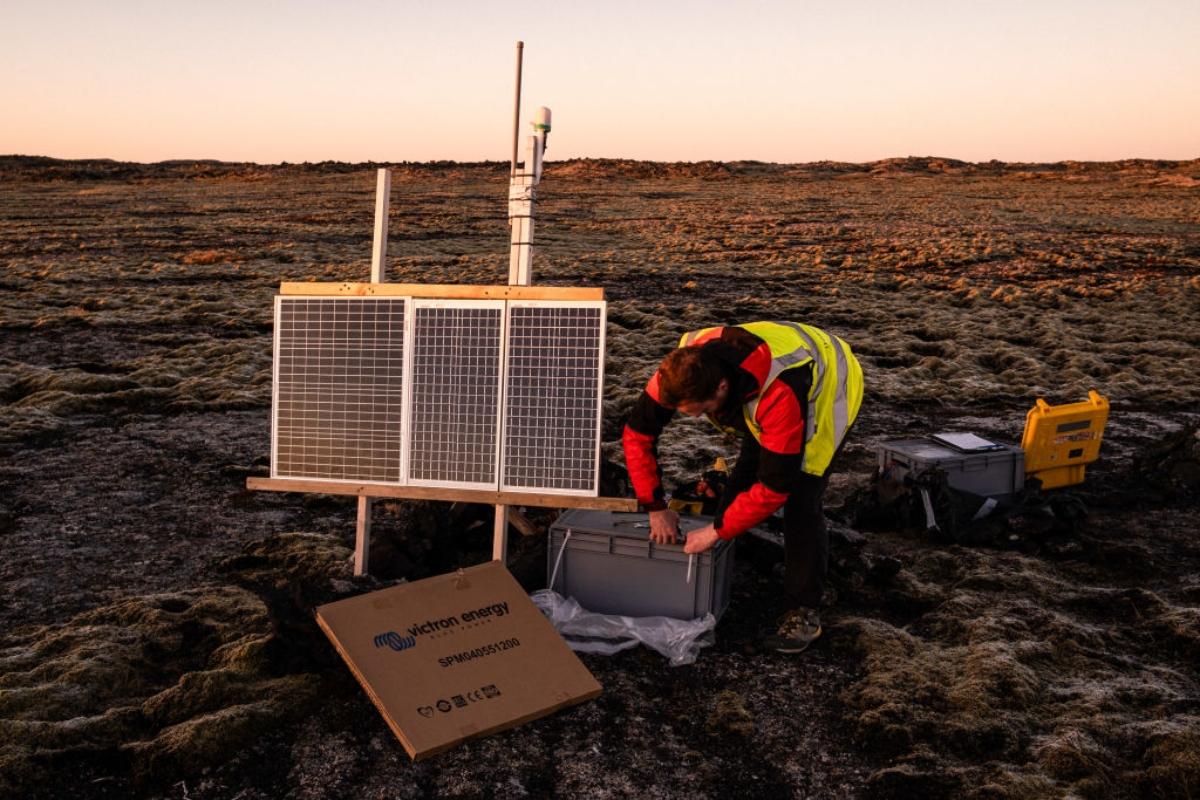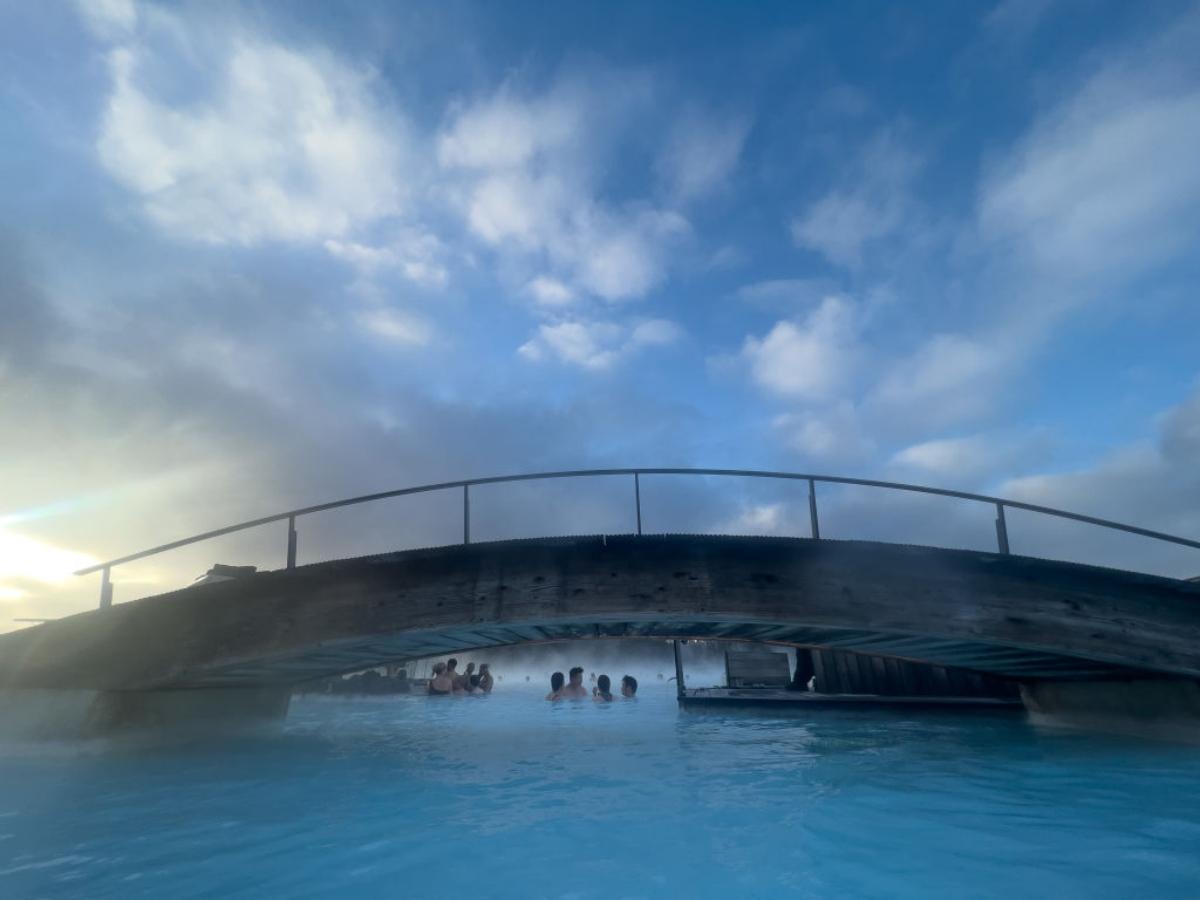Volcano in Iceland Erupts for the Seventh Time in A Year — Details
Residents of the Reykjanes Peninsula in Iceland have evacuated their homes due to ongoing volcanic eruptions.
Updated Nov. 21 2024, 11:57 a.m. ET

The road into Grindavik has been closed due to the threat of a volcanic eruption.
Citizens of the globe have been watching Iceland carefully in 2024 after a volcano erupted on Dec. 18, 2023, per CNN. Icelandic officials previously declared a state of emergency and forced residents of a nearby village to evacuate.The serious situation comes about following thousands of earthquakes that lead to the eruption, per The Independent.
In February, the volcano erupted for the third time in as many months, per CBS News. In March, Icelandic police declared a state of emergency after a new volcanic fissure erupted on the Reykjanes peninsula, also per CBS News. In May, the volcano exploded a fifth time, sending gas pollution towards the nation's capital, per Accuweather. Then, in August, the volcano exploded a sixth time. In November, citizens were startled by a seventh eruption, per NBC News.
Here's what's happened to lead to Iceland declaring a state of emergency in November 2023, and what the eruptions mean for residents.

Dr. Tom Winder installs a seismograph near Grindavik, Iceland.
Iceland first declared a state of emergency in November 2023 ahead of a volcanic eruption.
The country of Iceland was first declared in a state of emergency due to the series of earthquakes that were precursor to the volcanic eruption, BBC News reported on Nov. 12, 2023.
The area most affected by the Dec. 18 eruption was the fishing village of Grindavik, which evacuated almost 4,000 residents in November, with allowances to intermittently go back and check on their homes, per Reuters.
CNN reported that the U.S. Embassy in Iceland warned of the volcanic activity in November as well, saying, “If an eruption occurs, follow the instructions of Icelandic authorities. Volcanic hazards may include lava, toxic gases, and heavy smoke from fires ignited by lava.”

People relax at the Blue Lagoon in Iceland a few days before authorities closed the resort due to volcanic dangers.
What happens now that the volcano in Iceland has erupted?
According to The Independent, the IMO said an actual eruption could last for several weeks, disrupting local infrastructure and making it difficult to navigate through the country.
Per CBS News, following the initial eruption on Dec. 18, there was a second eruption Jan. 14, 2024, which put the town of Grindavik in harm's way. However, "defensive walls" that had been erected to protect the town were reinforced, although "several buildings" unfortunately received damage from lava flow.
The third eruption on Feb. 8 posed no threat to the coastal town of Grindavik, which had been previously evacuated. The Blue Lagoon spa was closed and guests were evacuated as well.
Although residents of Grindavik were cleared to return to their homes on Feb. 19, only roughly 100 residents actually returned.
In March 2024, the Icelandic volcano erupted for a fourth time "between stora Skogfell and Hagafell on the Reykjanes Peninsula," according to a statement made by the IMO, per CBS News. On March 16, Icelandic police declared a state of emergency.
Much like the eruption on Feb. 8, lava is flowing west, and Iceland's Department of Civil Protection and Emergency Management is sending a helicopter to assess the new fissure and its exact location.
On May 29, 2024, a fifth volcanic eruption, this time at the Sundhnúkur crater, sent lava 160 feet into the air. The crater is located on the Reykjanes Peninsula like the evacuated town of Grindavík. Also located in this area is the famed Blue Lagoon spa.
Officials said in a statement, "The first assessment of scientists is that the beginning of this eruption is more powerful than in previous eruptions," and warned that gas pollution from the explosion was expected to reach the capital by Thursday morning, per ABC News.
Upon the seventh sudden explosion, which started around 11:14 p.m. local time and created a fissure just under two miles long, Iceland’s meteorological office told NBC News that the explosion was significantly smaller than its predecessors — and that the Blue Lagoon has once again shut down and evacuated guests.
BBC News previously reported on Nov. 13, 2023 that the eruption may cause significant structural damage, as well as emit toxic fumes.
This article, published on Nov. 11, 2023, has been updated to reflect additional volcanic eruptions.